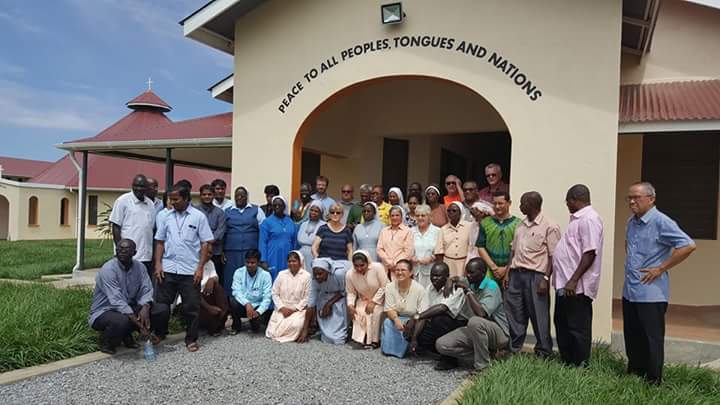The transfiguration of Jesus: following him through the cross and
becoming children of God as he is.
When we read the Gospel of Luke the narration
of the transfiguration starts by saying “About a week after Jesus had said
these things, he took whit him Peter ,John and James and went up a hill to pray.”
What he said a week before is very important to
understand the meaning of the Gospel of this coming Sunday.
What did happen a week before?
Jesus spoke to his disciples and to all the
people who were there listening to him about his suffering and death.
Jesus asked also to be followed and what the
followers have to do to be really his disciples; he said: “if you want to come
whit me, you must forget yourself, take up your cross every day, and follow
me.”
The followers have to freely decide whether to
follow Jesus or not. They have to forget their own selfishness, and take their
lives as it is without escape from the reality of their own life.
Jesus asked to his disciples and to everybody
to lose their lives for the sake of God.
The focus of Jesus is on reminding and helping
everybody to gaze on God and his love for them.
Jesus knows that sometime, or often, it is very
difficult to gaze on God when the life hurts us, it is difficult gaze on God
and his fatherhood and not on our problems.
To understand this word of God it’s necessary
to follow Jesus, and to go with him up to the hill and pray.
We can ask ourselves what we do really when the
life wounds us, when we don’t understand the love of the Father in our daily
life.
Do we put our trust in us or in him? Do we
spend time in prayer to stay with him or we spend more time with our thought?
Are we followers with our weakness and fears,
or we claim to change “the way of God”?
Jesus in the time of suffering and in the time
when he has to decide to enter in the Father’s plans prays.
Jesus decided to spend time with the Father and
during his prayer his countenance was altered and his clothing became dazzling
white.
In the transfiguration Peter, John and James
can see the divinity of Jesus, they can see Moses and Elija who speak whit
Jesus and hear the conversation between them about the “exodus” of Jesus.
Jesus shows to his three disciples that the
Divinity and the sufferings are not opposite.
The sufferings of Jesus is in the Father’s
plans, it’s the way that God, the Father, has chosen to show his the love for
all, to show his closeness to us in our life.
The suffering of Jesus is in the scriptures,
Moses and Elija are the sign of this.
The way that Jesus shall follow it’s started in
the heart of the Father, it is inserted in the History of salvation that passes
through the narrow door of the suffering.
To start to understand this reality it’s
necessary to be overshadowed by the cloud of the presence of God, a cloud that
doesn’t enlighten the way, but it is an appeal to believe. We can be disciples
not when we understand God, to understand God is impossible, we can be his
disciples when we believe, despite everything, in Him and when we are available
to believe more in Him that in us, to believe more in his projects that in ours.
But in this Gospel there is also another word
to receive directly by the Father, the same word that Jesus heard during his
baptism and now: “this is my Son, my chosen”.
This word is for Jesus because all his mission
is inserted within this special and unique relationship whit the Father, this
is his vocation and his identity, and it is also our vocation, to become more
and more children of God as Jesus is.
We are called to become children into the Son,
having the same mind and attitude Jesus had.
With the grace of God we can do it, if we go
deep into the relationship with the Father, if we believe in his love for us,
if we continue to follow him listening and believing in his words.
The gift of the transfiguration of Jesus could
enlighten our daily lives, believing that the suffering can be in God’s plans
to show the other the same love Jesus has shown us, asking to God to follow him
in our lives can become more and more an history of salvation for us and for
the people we meet.
“This is my Son my Chosen, listen to him!”
fr. Marco OFM

